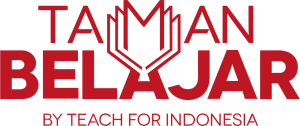IS Project Management

About this course
Dalam course IS Project Management dirancang untuk memberikan pemahaman dan keterampilan dasar dalam mengelola proyek sistem informasi (IS) secara efektif. Peserta akan mempelajari metodologi seperti Agile dan Scrum, serta teknik manajemen proyek yang mencakup pengelolaan jadwal, komunikasi, risiko, integrasi, lingkup, dan kualitas. Peserta juga akan memahami konteks manajemen proyek dalam lingkungan teknologi informasi, dari tahap perencanaan hingga penyelesaian proyek. Dengan menggabungkan teori dan aplikasi praktis, course ini mempersiapkan peserta untuk mengelola proyek IS dengan percaya diri dan sukses di dunia nyata.
What you will learn

Manajemen proyek adalah pendekatan terstruktur untuk mengelola usaha sementara yang bertujuan menciptakan produk, layanan, atau hasil yang unik. Berbeda dengan operasi bisnis yang berkelanjutan, proyek memiliki durasi terbatas dan berakhir setelah tujuan tercapai. Manajemen proyek melibatkan penerapan pengetahuan, keterampilan, dan teknik untuk mencapai sasaran dengan memperhatikan tiga batasan utama: ruang lingkup, waktu, dan biaya (triple constraint). Dengan manajemen proyek yang baik, organisasi dapat mengendalikan sumber daya secara efektif, memperkuat hubungan dengan pelanggan, serta meningkatkan efisiensi waktu dan biaya.
Project management is a structured approach to managing temporary endeavors aimed at creating a unique product, service, or outcome. Unlike continuous business operations, projects have a defined timeframe and conclude once their objectives are achieved. Project management involves applying knowledge, skills, and techniques to achieve goals while considering the three primary constraints: scope, time, and cost (the triple constraint). Effective project management enables organizations to control resources efficiently, strengthen customer relationships, and improve time and cost efficiency.

Agile Project Management is a project management methodology designed to handle high complexity and uncertainty, especially in software development, though it is now applied across various industries. This approach emphasizes flexibility, collaboration, and quick adaptation to changes to achieve optimal outcomes. The Agile Manifesto, established in 2001, forms the foundation of this approach with four core values: prioritizing individuals and interactions, functional software, customer collaboration, and responsiveness to change. Agile employs various project life cycles, such as iterative, incremental, and hybrid, to deliver value progressively and adapt to stakeholder needs and feedback.

Scrum adalah kerangka kerja manajemen proyek yang efektif untuk menangani proyek-proyek kompleks, khususnya dalam pengembangan produk dan layanan inovatif. Scrum didasarkan pada pendekatan Agile, yang menekankan pengembangan bertahap dan berulang melalui Sprint—periode waktu tertentu untuk menyelesaikan tugas-tugas dari Product Backlog. Dalam Scrum, terdapat tiga peran utama: Scrum Master, Product Owner, dan Developer, yang bekerja bersama dalam struktur dan acara terorganisir seperti Sprint Planning, Daily Scrum, Sprint Review, dan Sprint Retrospective. Kerangka kerja ini dirancang untuk memberikan fleksibilitas, transparansi, serta kemampuan beradaptasi cepat terhadap perubahan dan umpan balik, yang pada akhirnya meningkatkan efisiensi dan kualitas hasil proyek.
Scrum is an effective project management framework designed to handle complex projects, particularly in developing innovative products and services. Based on Agile methodology, Scrum emphasizes incremental and iterative development through Sprints—fixed periods dedicated to completing tasks from the Product Backlog. In Scrum, there are three main roles: Scrum Master, Product Owner, and Developer, who work together within a structured framework and events like Sprint Planning, Daily Scrum, Sprint Review, and Sprint Retrospective. This framework is designed to offer flexibility, transparency, and quick adaptability to changes and feedback, ultimately improving project efficiency and quality outcomes.

Modul Manajemen Proyek TI membahas manajemen proyek yang berfokus pada pengembangan dan implementasi sistem teknologi informasi, menggabungkan pendekatan siklus hidup proyek, struktur organisasi, dan budaya kerja yang dinamis. Modul ini juga mengulas tren terkini seperti globalisasi, outsourcing, dan tim virtual yang semakin banyak digunakan dalam manajemen proyek TI. Dengan metode Agile dan Scrum yang adaptif, modul ini bertujuan memberikan panduan kepada manajer proyek untuk mengelola proyek TI secara efisien dan responsif terhadap perubahan teknologi dan kebutuhan bisnis.
The IT Project Management module focuses on managing projects involving the development and implementation of information technology systems, integrating the project lifecycle approach, organizational structure, and a dynamic work culture. It also explores current trends such as globalization, outsourcing, and virtual teams increasingly used in IT project management. By utilizing adaptive methods like Agile and Scrum, the module aims to guide project managers in efficiently managing IT projects while being responsive to technological changes and business needs.

Manajemen Jadwal Proyek berfokus pada konsep dan teknik penting untuk mengelola jadwal proyek dalam proyek teknologi informasi. Modul ini mencakup area utama seperti mendefinisikan aktivitas, urutan tugas, estimasi durasi, dan penggunaan alat seperti Gantt chart dan metode jalur kritis. Modul ini juga menyoroti pendekatan penjadwalan agile dan pentingnya manajemen waktu yang akurat untuk memastikan penyelesaian proyek tepat waktu.
Project Schedule Management focuses on essential concepts and techniques for managing project schedules in information technology projects. It covers key areas such as defining activities, sequencing tasks, estimating durations, and using tools like Gantt charts and critical path methods. The module also highlights agile scheduling approaches and the importance of accurate time management to ensure timely project completion.

Manajemen Komunikasi Proyek menekankan pentingnya komunikasi yang efektif dalam manajemen proyek. Modul ini mencakup keterampilan penting seperti merencanakan, mengelola, dan memantau komunikasi proyek untuk memastikan aliran informasi yang jelas dan tepat waktu. Modul ini juga menyoroti alat dan teknik seperti email, rapat, dan platform kolaborasi untuk meningkatkan interaksi dengan pemangku kepentingan dan memperkuat kepemimpinan tim.
Project Communications Management emphasizes the importance of effective communication in project management. It covers essential skills such as planning, managing, and monitoring project communications to ensure clear and timely information flow. The module also highlights tools and techniques, like email, meetings, and collaborative platforms, to enhance stakeholder interactions and foster strong team leadership.

Manajemen Risiko Proyek berfokus pada mengidentifikasi, menganalisis, dan merespons risiko dalam proyek TI. Modul ini mengeksplorasi berbagai teknik, seperti analisis risiko kualitatif dan kuantitatif, pembuatan daftar risiko, dan perencanaan respons risiko. Modul ini menekankan pentingnya manajemen risiko yang proaktif untuk meningkatkan keberhasilan proyek serta mencakup pertimbangan untuk proyek Agile di mana penilaian risiko dilakukan secara iteratif.
Project Risk Management focuses on identifying, analyzing, and responding to risks in IT projects. It explores various techniques, such as qualitative and quantitative risk analysis, risk registers, and risk response planning. The module emphasizes the importance of proactive risk management to increase project success and includes considerations for Agile projects where risk assessment is an iterative process.

Manajemen Integrasi Proyek memberikan gambaran menyeluruh tentang bagaimana mengoordinasikan semua aktivitas manajemen proyek di berbagai area pengetahuan. Modul ini mencakup proses-proses penting seperti pengembangan piagam proyek, rencana manajemen proyek, pengelolaan pekerjaan proyek, dan pengendalian perubahan yang terintegrasi. Penekanan diberikan pada penyelarasan tujuan proyek dengan strategi organisasi, pemilihan proyek berdasarkan nilai strategis, dan manajemen perubahan untuk memastikan keberhasilan hasil proyek.
Project Integration Management provides a comprehensive overview of coordinating all project management activities across different knowledge areas. It includes key processes such as developing a project charter, project management plan, directing and managing project work, and integrated change control. Emphasis is placed on aligning project goals with organizational strategy, selecting projects based on strategic value, and managing changes to ensure successful project outcomes.

Manajemen Lingkup Proyek berfokus pada mendefinisikan dan mengendalikan lingkup proyek TI. Modul ini mencakup proses utama, termasuk perencanaan manajemen lingkup, pengumpulan kebutuhan, pendefinisian lingkup, pembuatan Struktur Perincian Kerja (WBS), validasi lingkup, dan pengendalian lingkup. Modul ini menekankan pentingnya manajemen lingkup yang jelas untuk menghindari masalah seperti perluasan lingkup yang tidak terkendali serta memastikan hasil proyek memenuhi harapan pemangku kepentingan secara efektif.
Project Scope Management focuses on defining and controlling the scope of IT projects. It covers key processes, including planning scope management, collecting requirements, defining scope, creating the Work Breakdown Structure (WBS), validating scope, and controlling scope. The module emphasizes the importance of clear scope management to avoid issues like scope creep and to ensure project deliverables meet stakeholder expectations effectively.

Manajemen Kualitas Proyek menekankan pentingnya mengelola dan memastikan kualitas sepanjang siklus hidup proyek. Modul ini mencakup proses utama seperti perencanaan, pengelolaan, dan pengendalian kualitas, dengan fokus pada teknik seperti Six Sigma, audit kualitas, dan sampling statistik. Modul ini juga menyoroti pentingnya keseimbangan antara kualitas dengan waktu, biaya, dan lingkup, serta memperkenalkan standar kualitas seperti ISO dan model kematangan untuk meningkatkan hasil proyek.
Project Quality Management emphasizes managing and ensuring quality throughout the project lifecycle. It covers key processes such as planning, managing, and controlling quality, with a focus on techniques like Six Sigma, quality audits, and statistical sampling. The module also highlights the importance of balancing quality with time, cost, and scope, and it introduces quality standards like ISO and maturity models to improve project outcomes.
Meet your instructors
Course Information
Go to courseStart Date
13 September 2024
End Date
-
Language
English, Bahasa Indonesia
Category
Business Information Technology
Duration
20 Hours
Enrolled Students
4
Rating
0.0
Reviews
No review yet
No review yet
